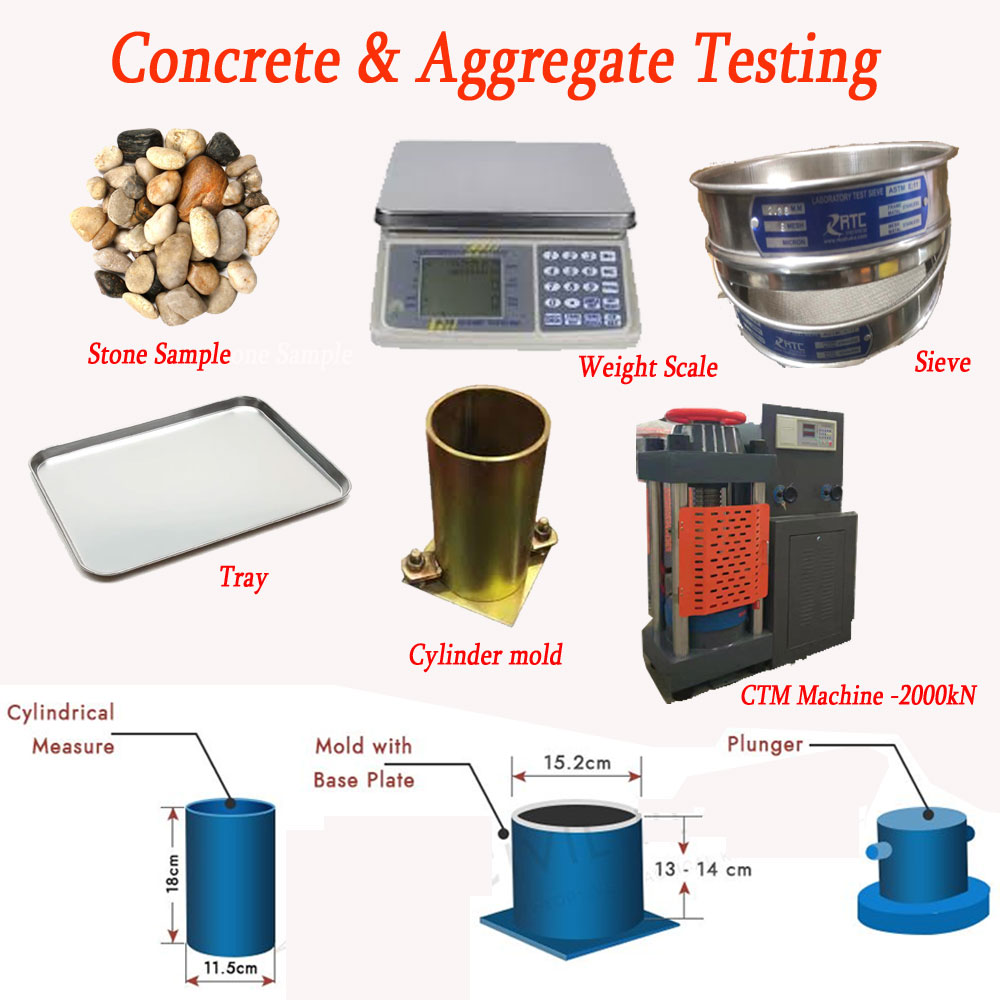What Is Aggregate Test, why do Aggregate Testing??
world wide Aggregate test are a set of tests conducted on aggregates, which are materials such as sand, gravel, or crushed stone that are used in concrete, asphalt, and other construction applications. These tests are performed to assess the quality and properties of aggregates, as these materials play a crucial role in determining the strength, durability, and overall performance of construction materials.
- Aggregate testing is crucial for quality control in construction materials, helping ensure that aggregates meet the specified standards and contribute to the overall performance and durability of the finished concrete or asphalt product. Testing methods may vary based on regional standards and project specifications.
Lab Test on Aggregates at Site
Performing laboratory tests on aggregates at a construction site is essential to ensure the quality and suitability of the aggregates for use in concrete, asphalt, or other construction applications. While some tests may be conducted in specialized laboratories, certain field tests can provide quick assessments of aggregate properties. Laboratory Tests:
Gradation Test: Purpose: Determines the particle size distribution of the aggregate. Procedure: Sieves of various sizes are used to separate and classify aggregates into different size fractions.
Significance: Helps in designing concrete mixes with the desired workability and strength. - Specific Gravity and Absorption Test: Purpose: Measures the specific gravity and water absorption of aggregates. Procedure: Involves weighing aggregates in air and in water to calculate specific gravity and absorption. Significance: Affects the volume of voids and, indirectly, the unit weight of aggregates. Sampling of Aggregate Tests Sampling of aggregate tests refers to the process of selecting a representative subset of items or data from a larger population for testing or analysis. In various fields such as statistics, quality control, and research, aggregate tests are conducted to draw conclusions about the entire population based on the results obtained from the sampled subset. When conducting aggregate tests, it’s important to consider factors such as the size of the population, the purpose of the test, and the resources available for sampling. The goal is to obtain a sample that is both representative and statistically valid to make meaningful inferences about the entire population. Procedure of Aggregate Crushing Value The Aggregate Crushing Value (ACV) test is a standard test procedure used to determine the resistance of aggregates to crushing and degradation in construction applications. It is an essential test for understanding the mechanical properties of aggregates.
Here is a step-by-step procedure for conducting the Aggregate Crushing Value test:
Equipment and Materials:
Aggregate Crushing Value Apparatus: It consists of a cylindrical steel container (15 cm diameter) with a plunger and a base plate.
Testing Machine: The machine should be capable of applying a load of 40 tones at a uniform rate of 4 tones per minute.
Aggregate Testing Equipment:


